
Karahi Point
Karahi Point is named for a dish that takes its title from the vessel it’s cooked in.
Specializing in Pakistani and Indian cuisine, they also do lots of curries and kababs, everything made from scratch to order, on site.
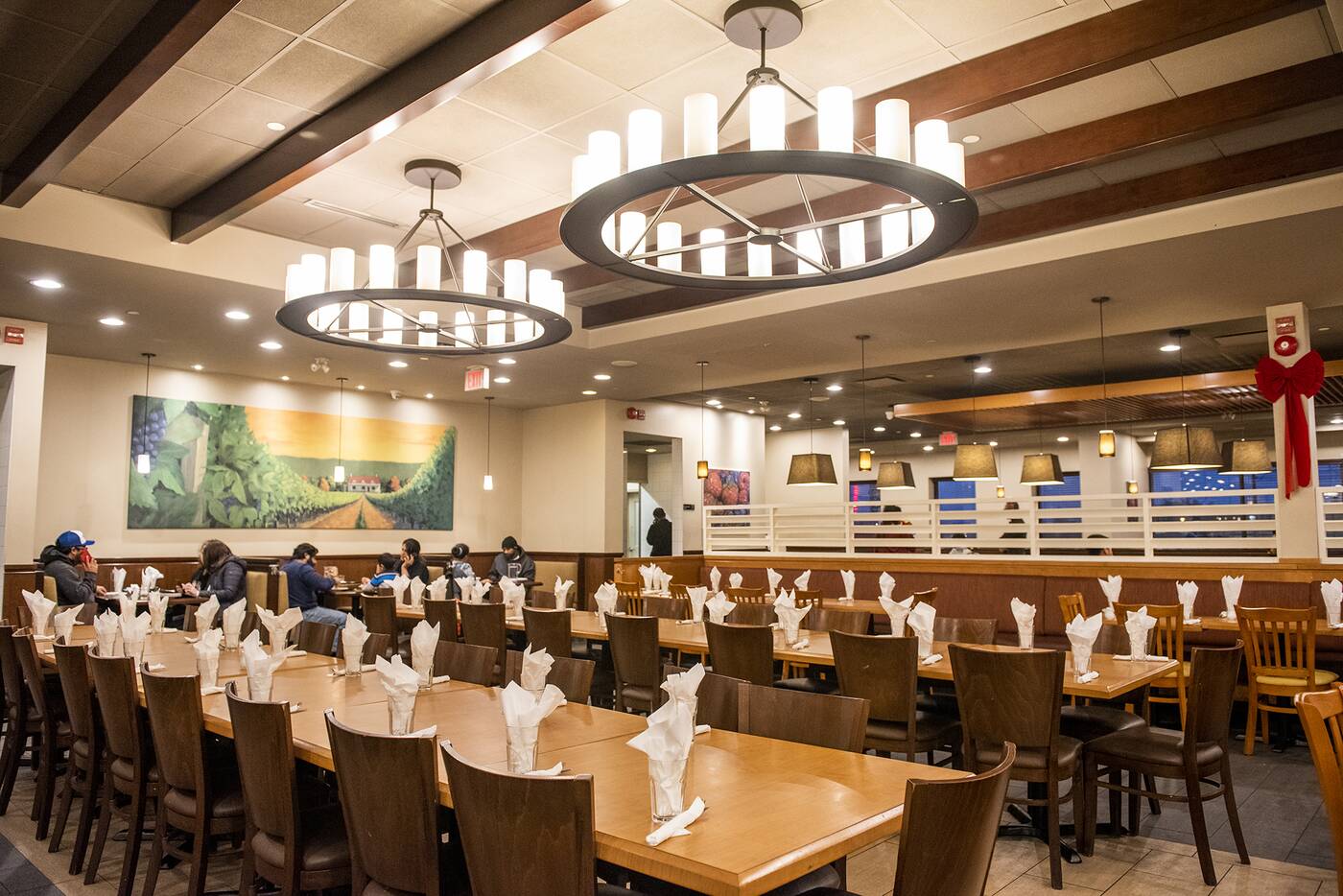
The former Swiss Chalet (explaining the castle-like rotunda entryway) has a whopping capacity of 250, and is the newer of two Karahi Point locations.
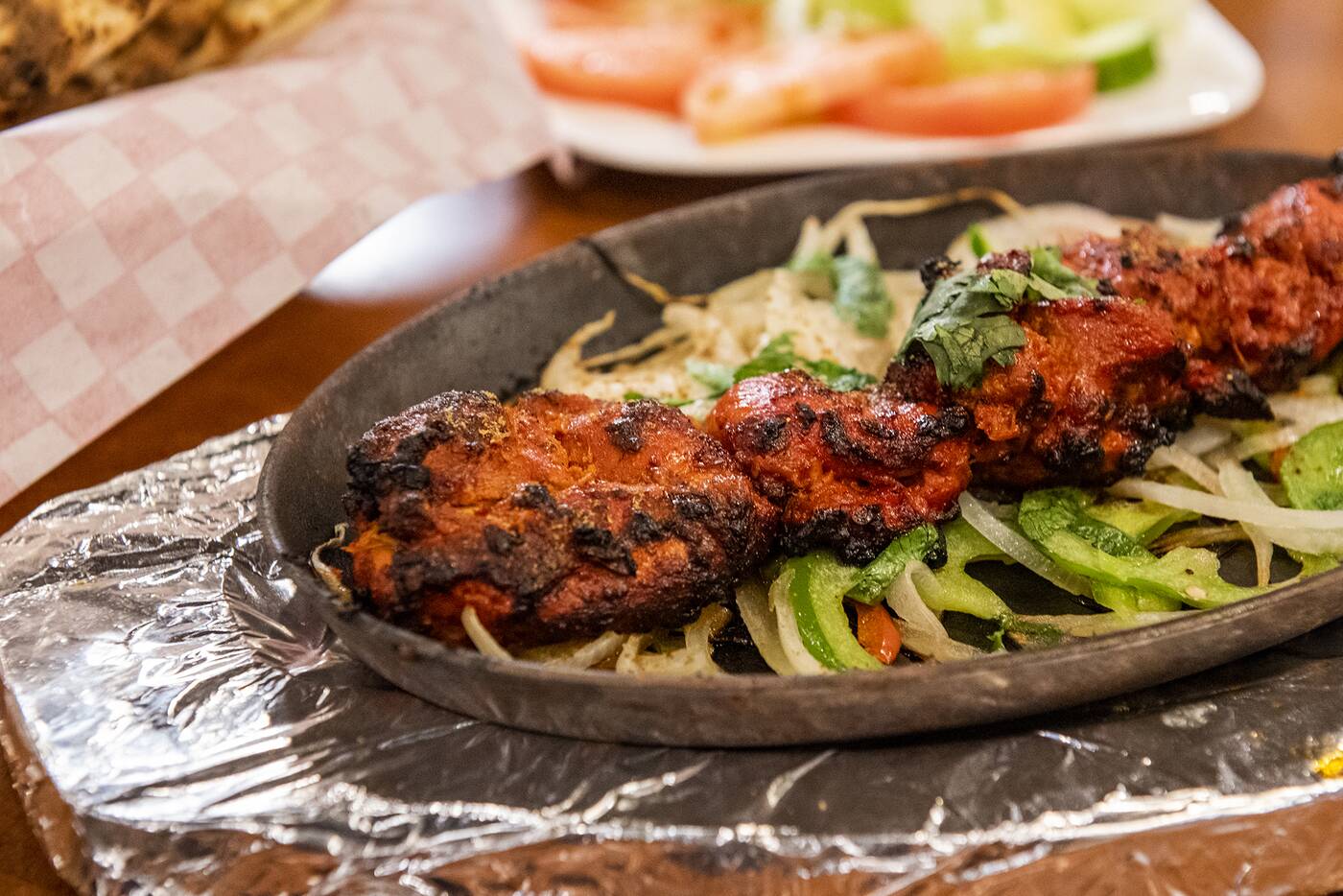
A boneless dark meat chicken tikka kabab ($13.99), like everything in the “Sizzling Barbeque” section, comes plated on a burning hot skillet on a bed of onions. The dark meat is rich and juicy, cooked evenly all the way through thanks to a tandoor oven.
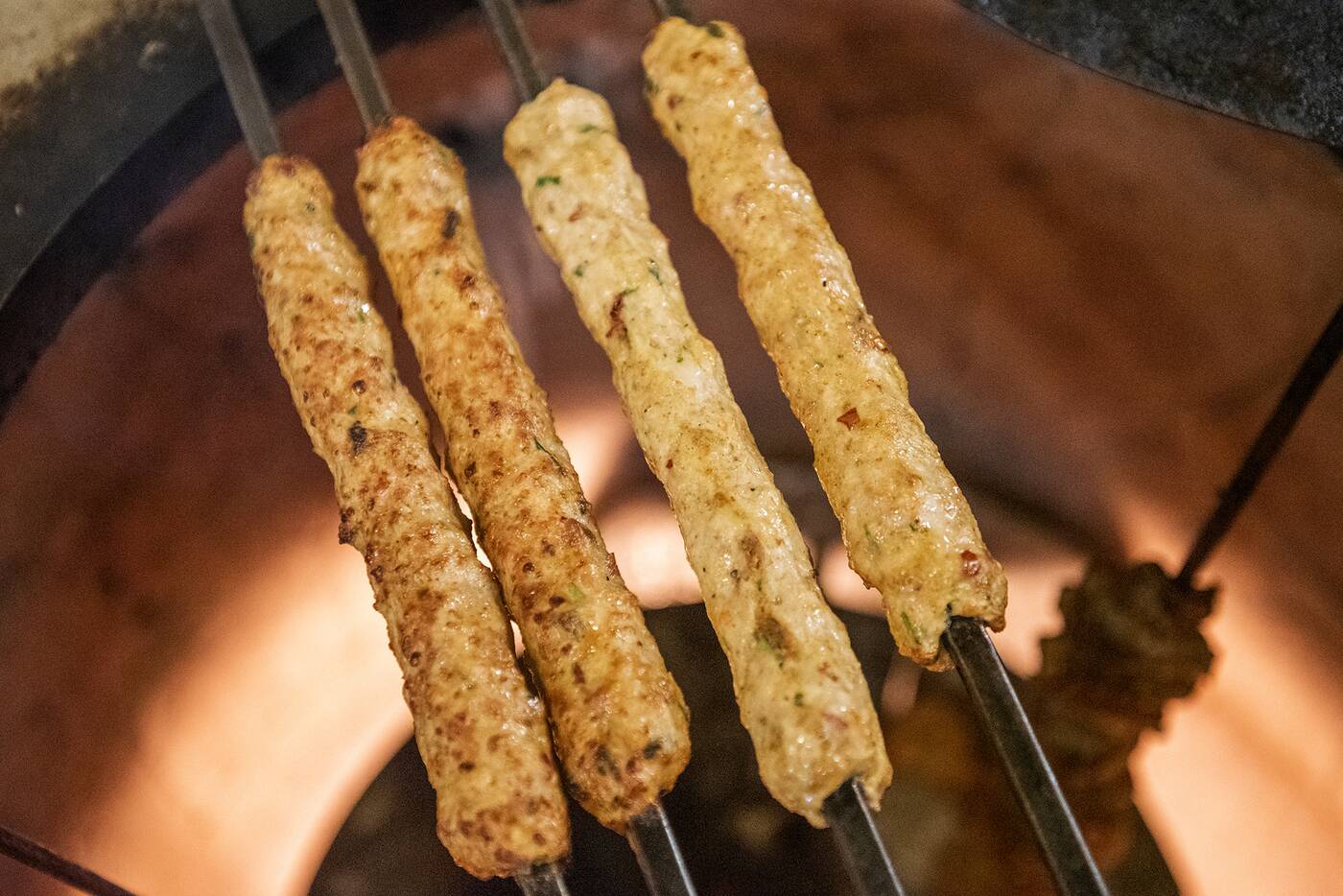
Both the tandoor and grill are used to cook kababs.
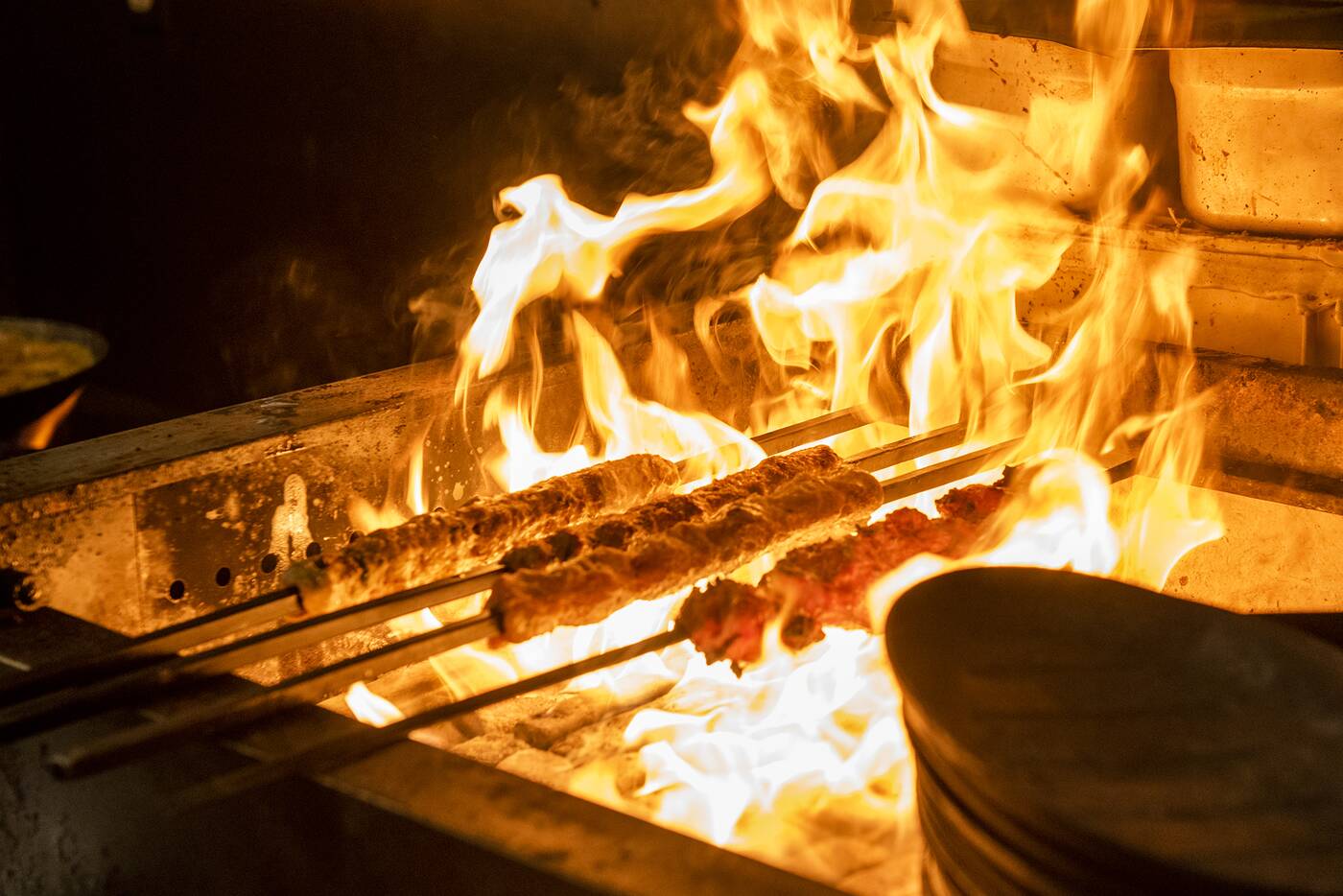
The tandoor offers consistency, grilling over open flame lending char.
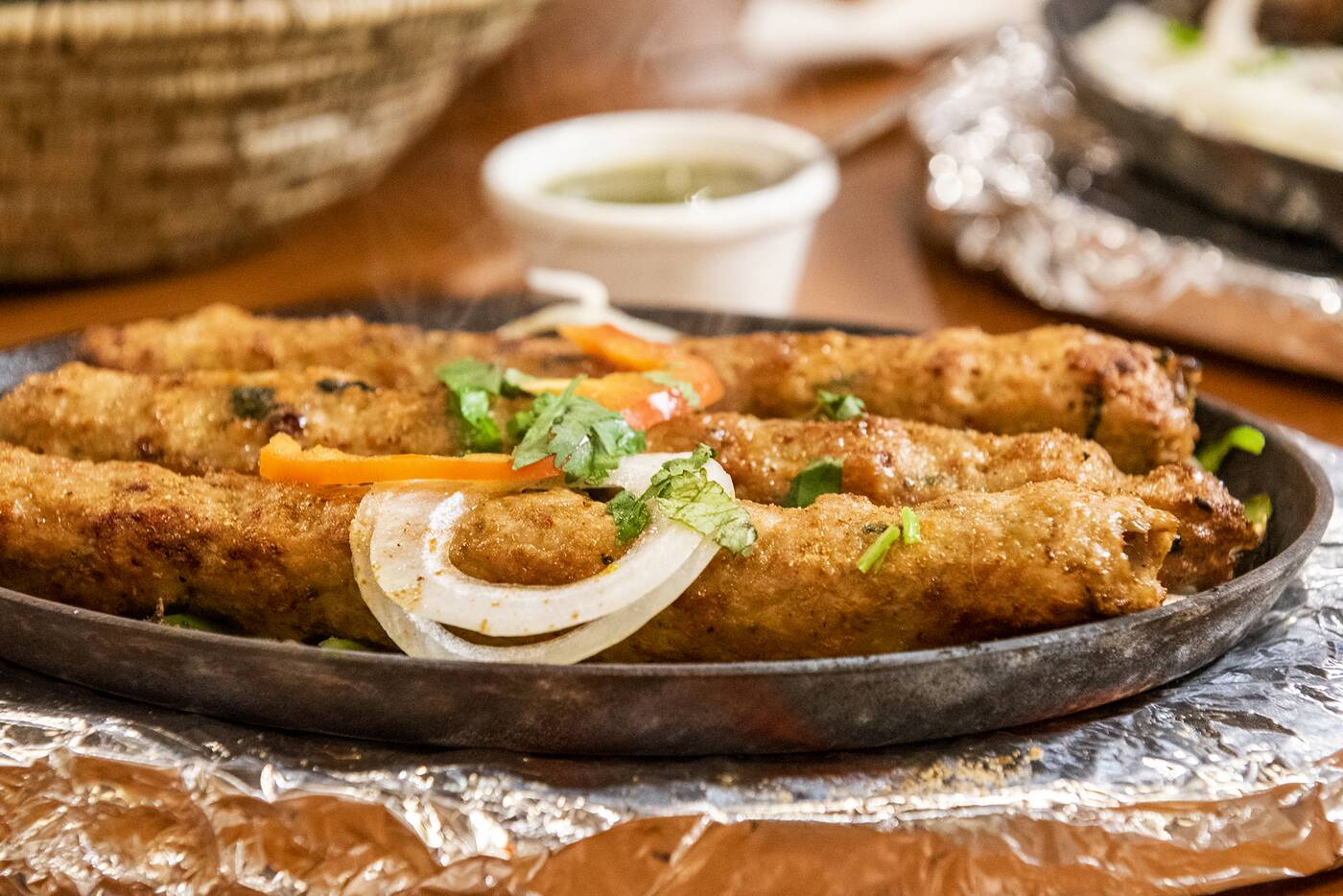
Chicken seekh kabab goes for $12.99 for an order of three, this kind of kabab made by packing minced chicken marinated in earthy spices onto a skewer, yielding a bit more of a crumbly texture.
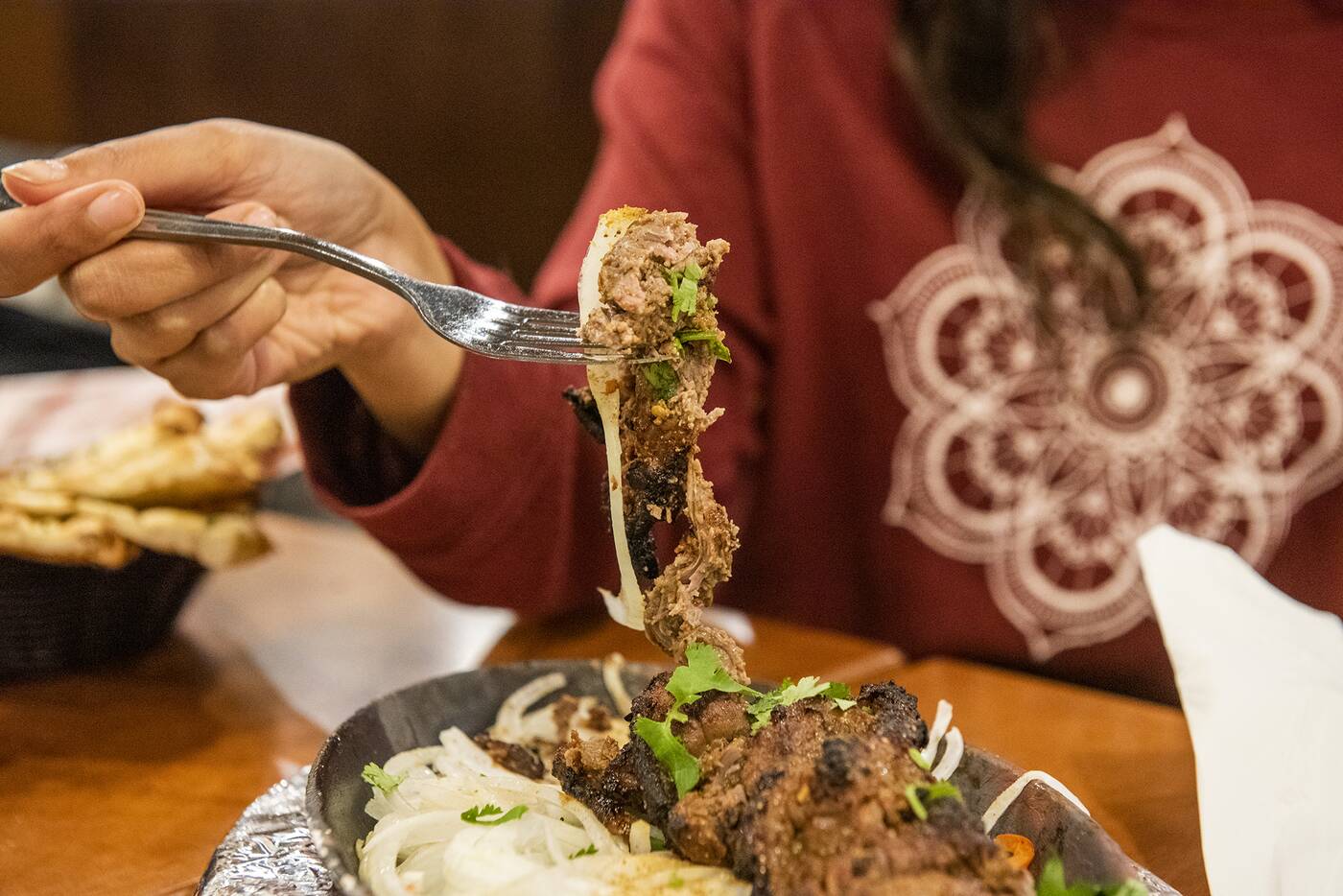
A beef Bihari kabab ($13.99) represents yet another style of kabab, strips of meat packed onto a skewer. Like all meat for kababs, it gets a long marinade, this one always at least overnight, resulting in juicy and tender beef that’s very flavourful.
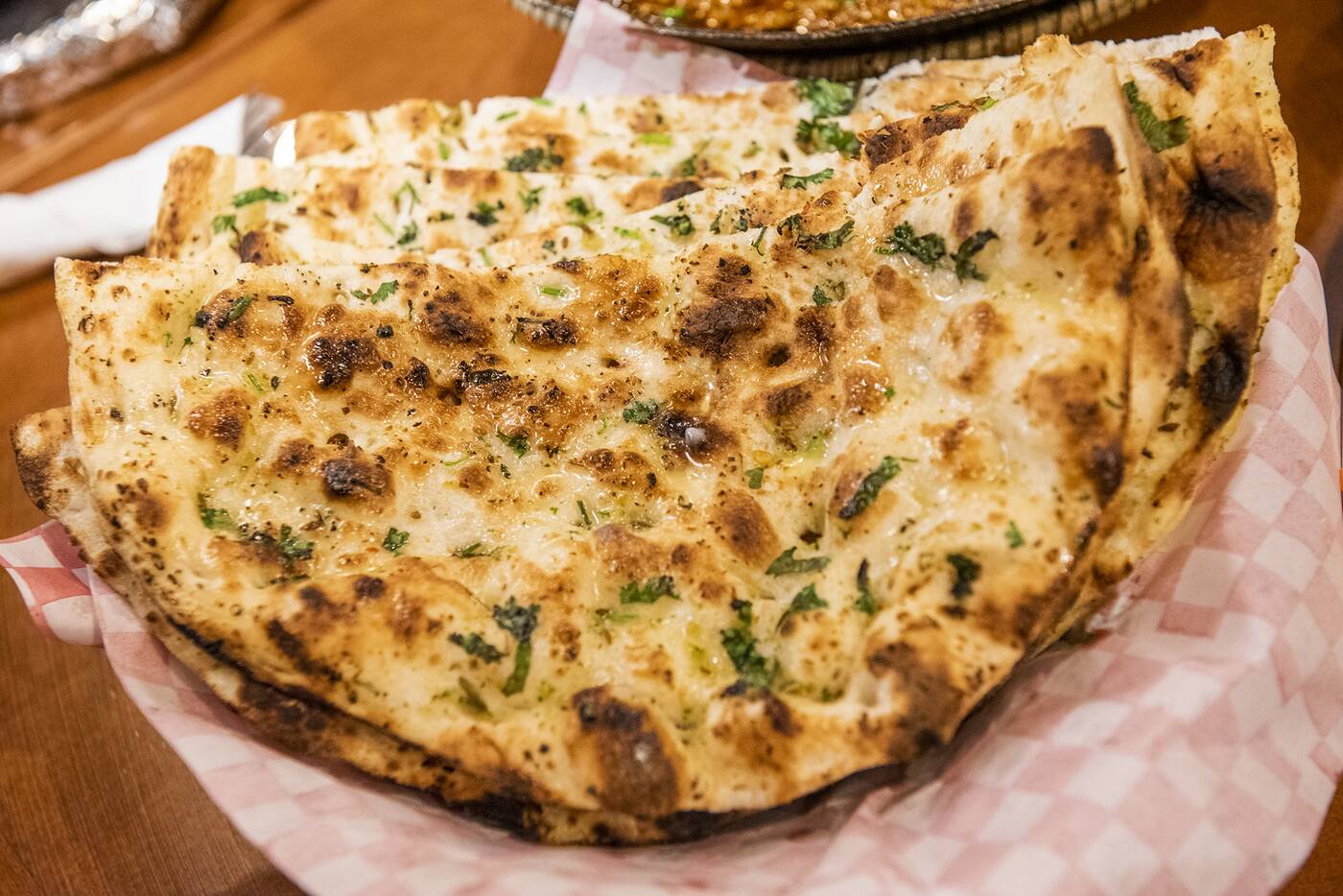
Naan is a mandatory accompaniment, baked here, circular, cut in half and topped with aromatics. Splurge a little and go for the garlic naan, incredibly fragrant and oily to the touch, perfect for scooping up chunks of meat and onion and drizzling with condiments.
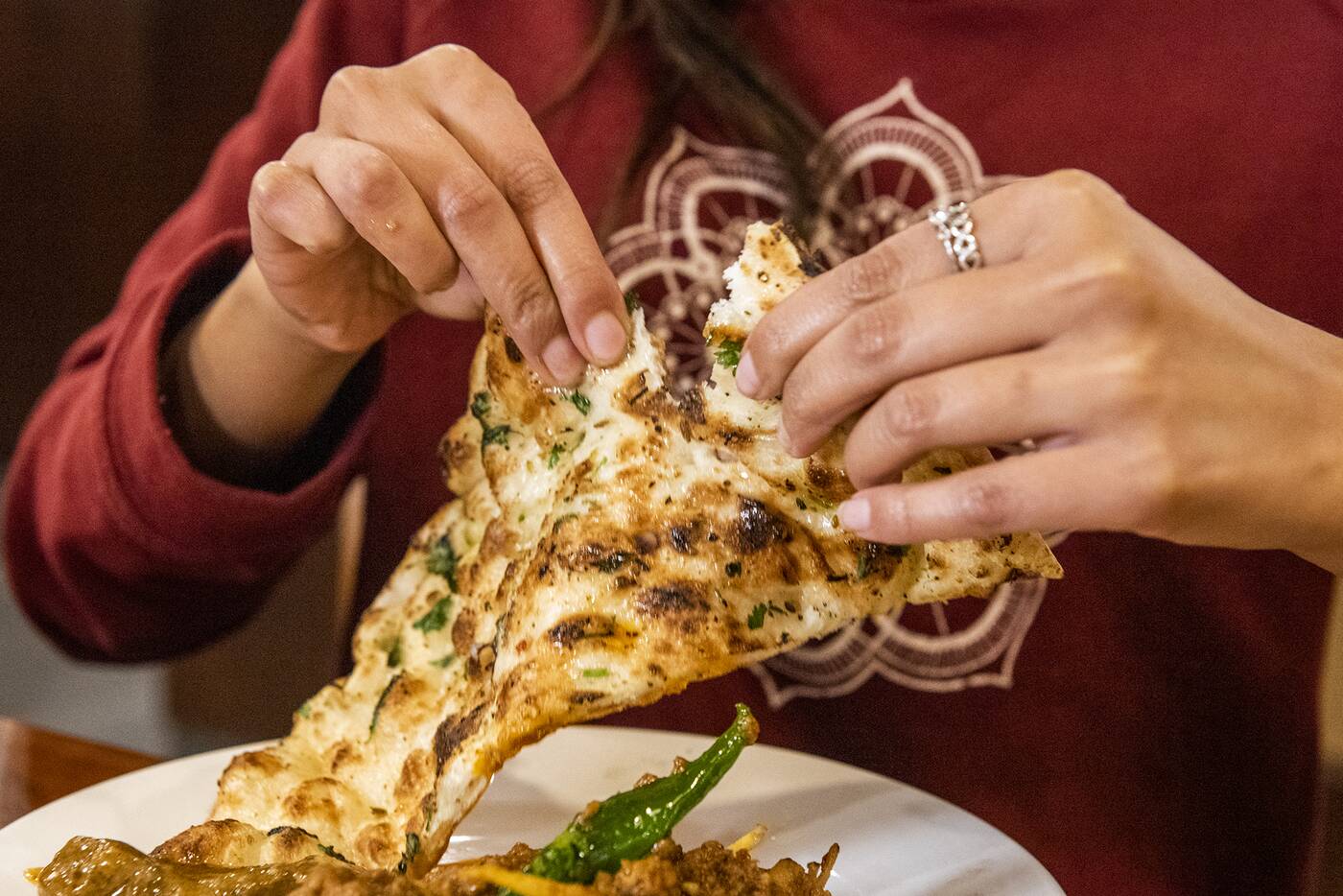
Veggies, house raita, and a more sour green condiment of mint, chili, tomato and coriander are other typical complimentary accompaniments. Wrap it all up with the meat in flatbread for a perfectly personalized wrap-like bite.
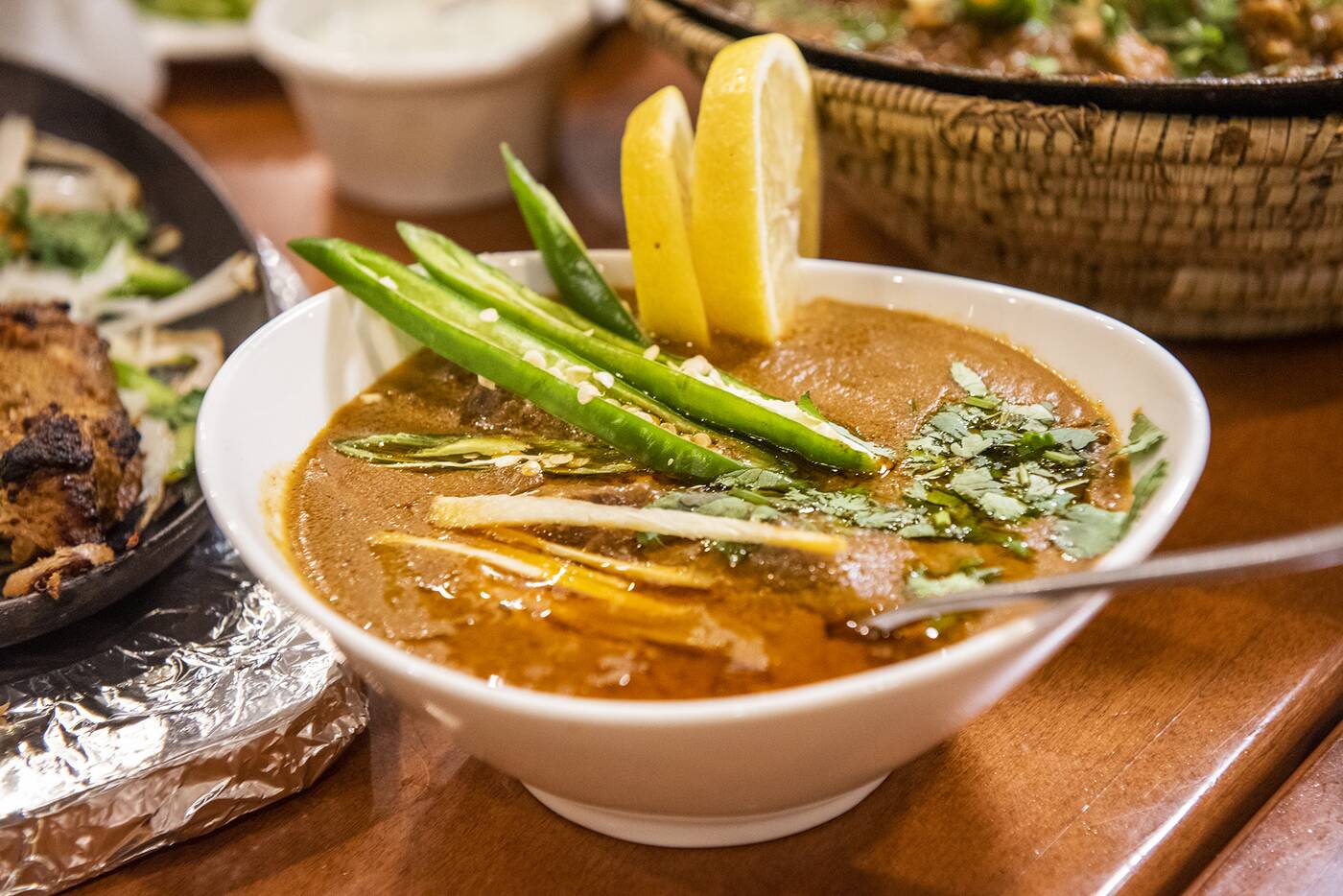
Nihari ($14.99) is a very traditional Pakistani curry, big hunks of beef slow-cooked in a viscous, spicy gravy, usually garnished with lemon as well as thinly-sliced ginger and chili that adds even more heat and punch.
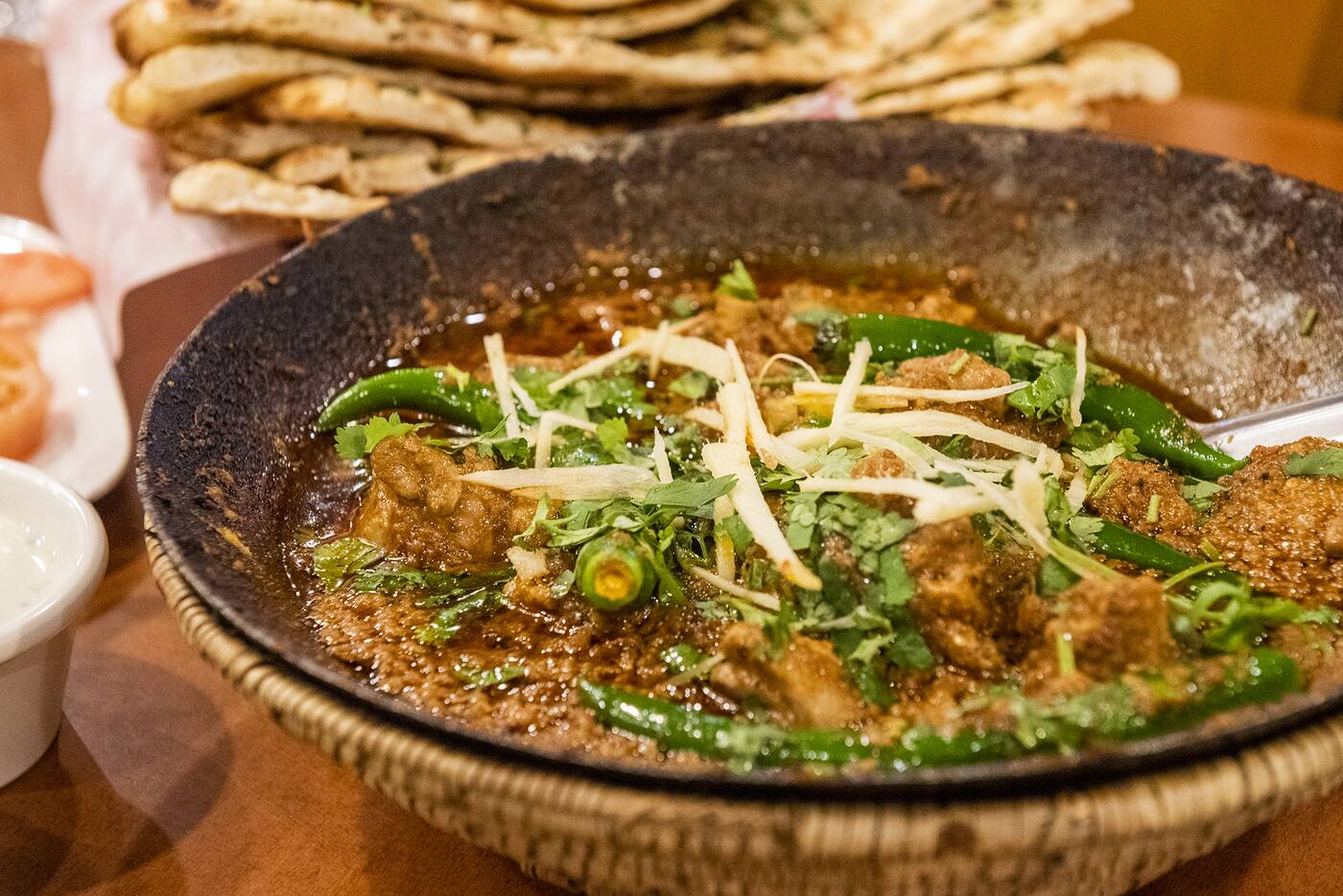
Chicken karahi with bones ($35.99 for a full two-pound order) automatically comes as a mix of white and dark meat, served with naan and raita. The karahi vessel is both cooking and serving vessel, a deep pan invented centuries ago in Southeast Asia.
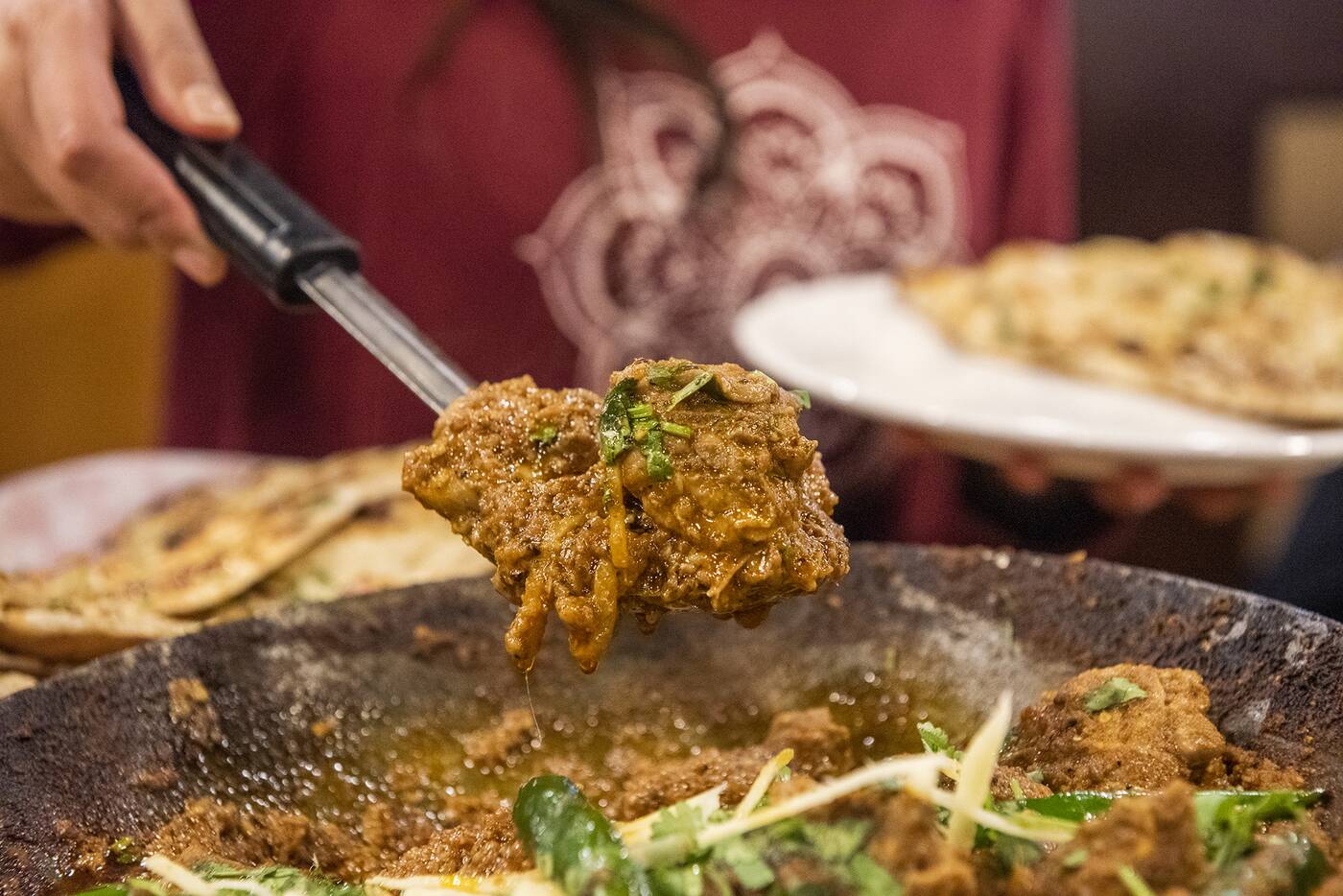
The dish itself is a bit difficult to manage with bones, so I’d go for the boneless dark meat if convenience is a priority, but the flavour definitely has incredible depth.
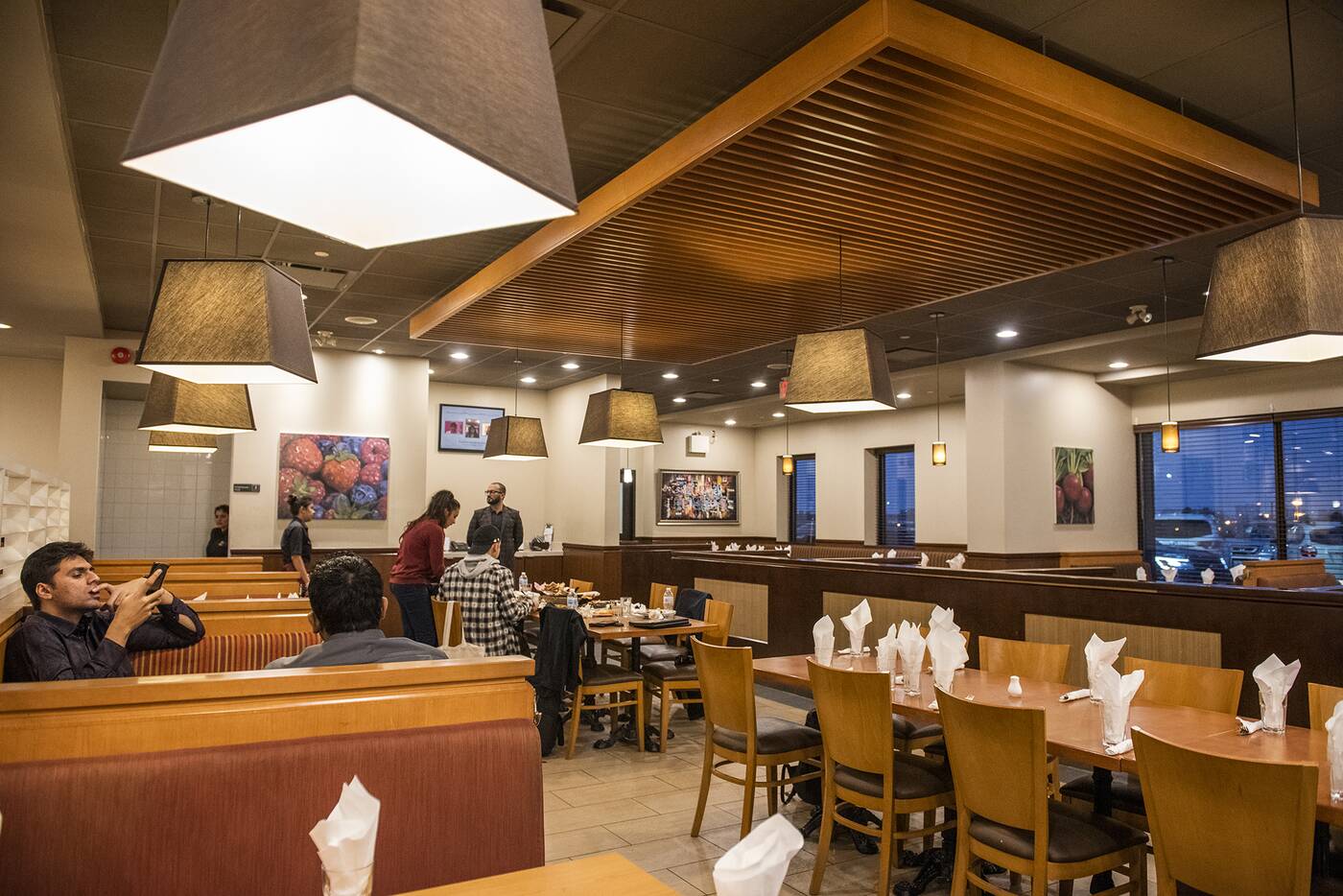
A bit thicker and chunkier and a bit less spicy of a gravy than the Nihari, the curry with a base of sweet tomato paste, oil and water still has a fair amount of heat and a complexity that comes from a secret blend of spices.
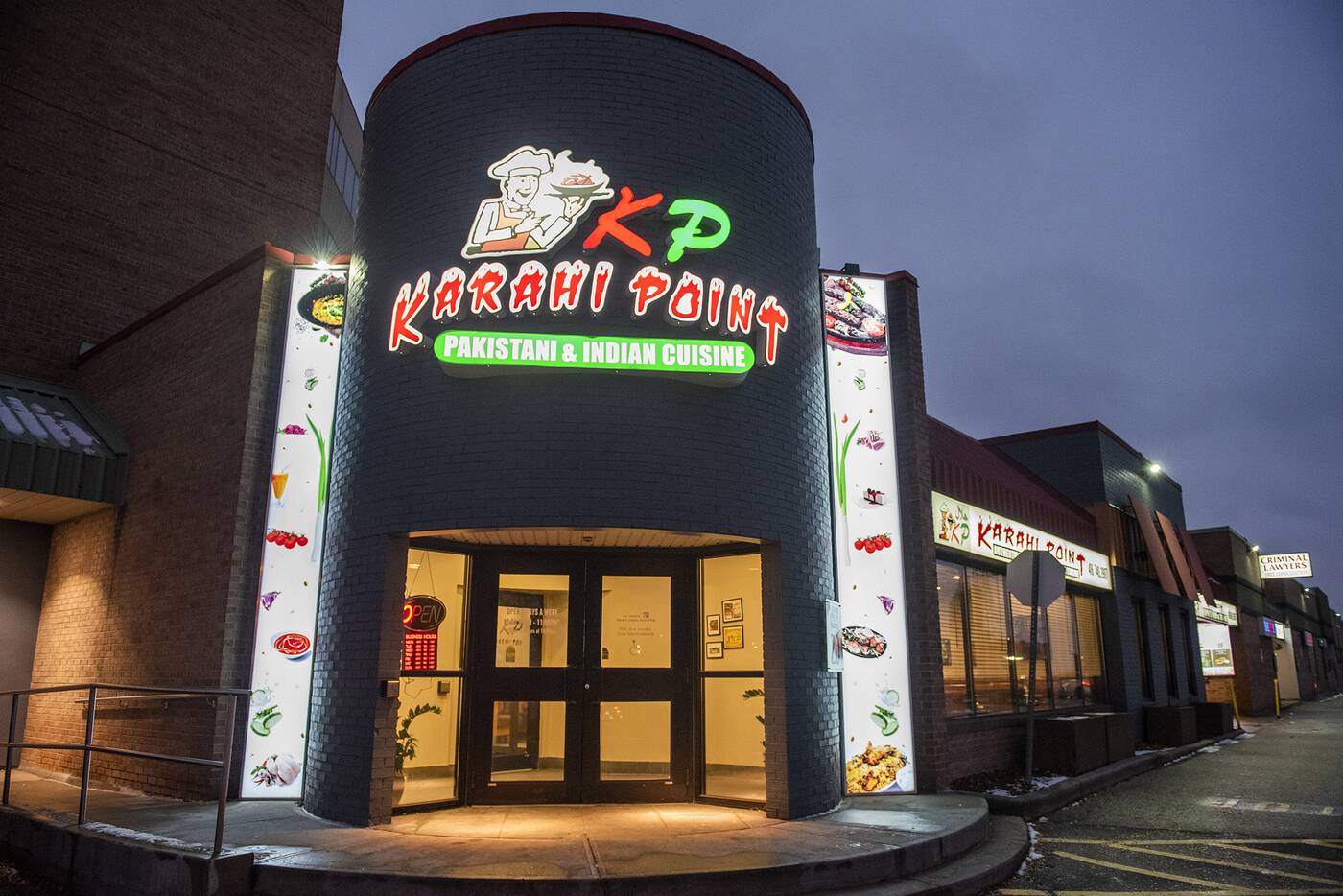
Hector Vasquez









